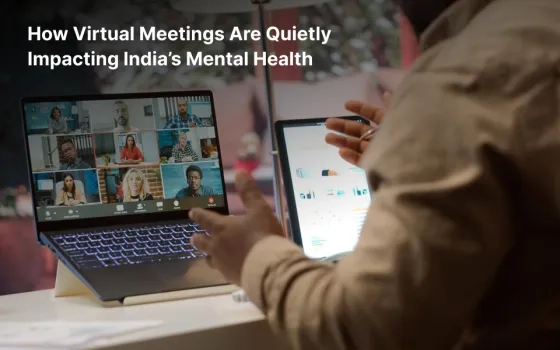
The onset of the pandemic has put the entire country on a lockdown mode since March,2020. And with lockdown, came the new way of working which is WFH. WFH does sound good as it gives the much-required flexibility and saves a lot of time which was earlier devoted to traveling back and forth. But is it the same for everybody? The answer is -no.
The most affected or anxious are those employees who are directly associated with carrying out or managing frontline activities like production and delivery. Due to lockdown, activities like production, selling, and delivery have come to a halt. As a result, the employees managing these crucial activities of a business are anxious about what the future holds for them. And it is quite natural for them to feel so.
But is there a way to effectively manage this situation? Of course, there is. The key player in this situation is the manager. Managers are the critical link between an organization and the employees who can either make it or break it.
The remote working environment has some cons, just like the two sides of a coin. With the reduction in production activities and consequently decreasing revenues for the organization, most businesses would resort to cost-cutting wherever possible. And to do this, laying off the ground-level staff is what usually comes to the mind of senior management. Due to this, the junior management or ground level-staff are bound to feel anxious and paranoid regarding the security and future of their jobs.
Also, implementing WFH is not that easy. Managing and keeping the team engaged virtually is a huge task. Collaboration, communication, follow-ups are different in a virtual environment as compared to what used to happen in B.C (before corona) times. If the manager is not able to effectively manage the remote teams, it might increase the chances of disengagement and eventually increase in attrition.
Now that the fact that junior management is more on the verge of being disengaged and eventually leaving the organization is known, what can be done to prevent all this from happening?
Following are simple but effective ways for the managers to keep the junior management engaged with the organization-
1) Lend an ear to the employees and be empathetic
2) Effective and timely communication about the plans of the organization would help the employees to feel at rest
3) Support learning of your employees during the WFH period
4) maintain a healthy relationship with the employees by showing your support and concern for them
5) Tell and show the employees that they are vital for the organization
6) Motivate the team by recognizing their efforts
7) Make the emotional well-being of the employees your top priority. Set up informal virtual meetings and sessions to talk to the employees beyond business.
This is a difficult time for everybody. Employees at all levels in an organization are affected in some way or the other- the junior level being affected more. In such a situation, instilling a sense of confidence amongst the employees and showing that the organization truly values them can help the business in the long run. Afterall once everything goes back to normal, it is these employees who would help the senior management to put the business back on track.


















